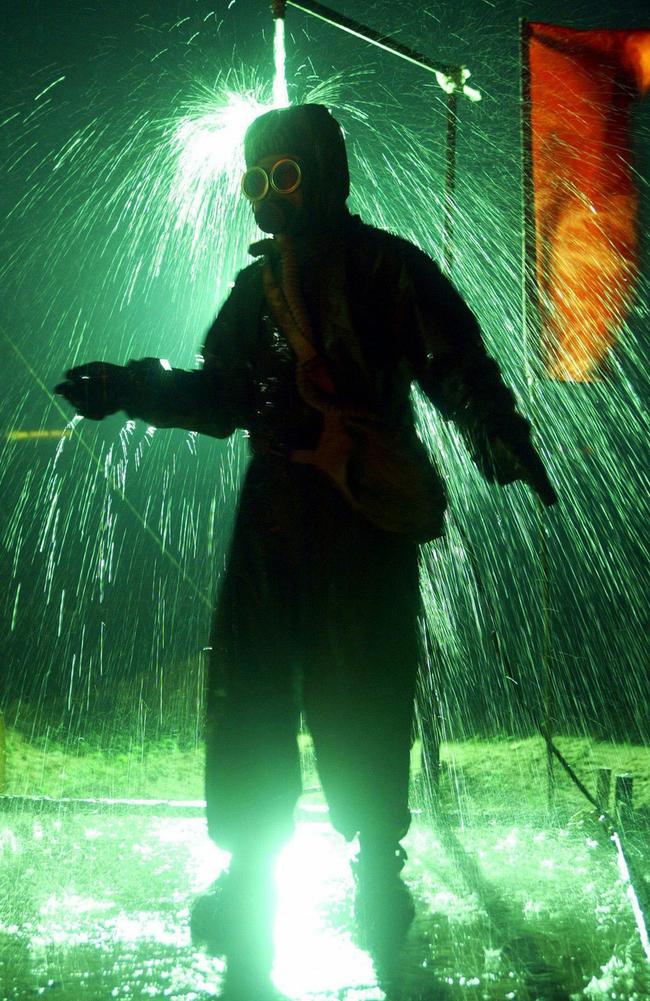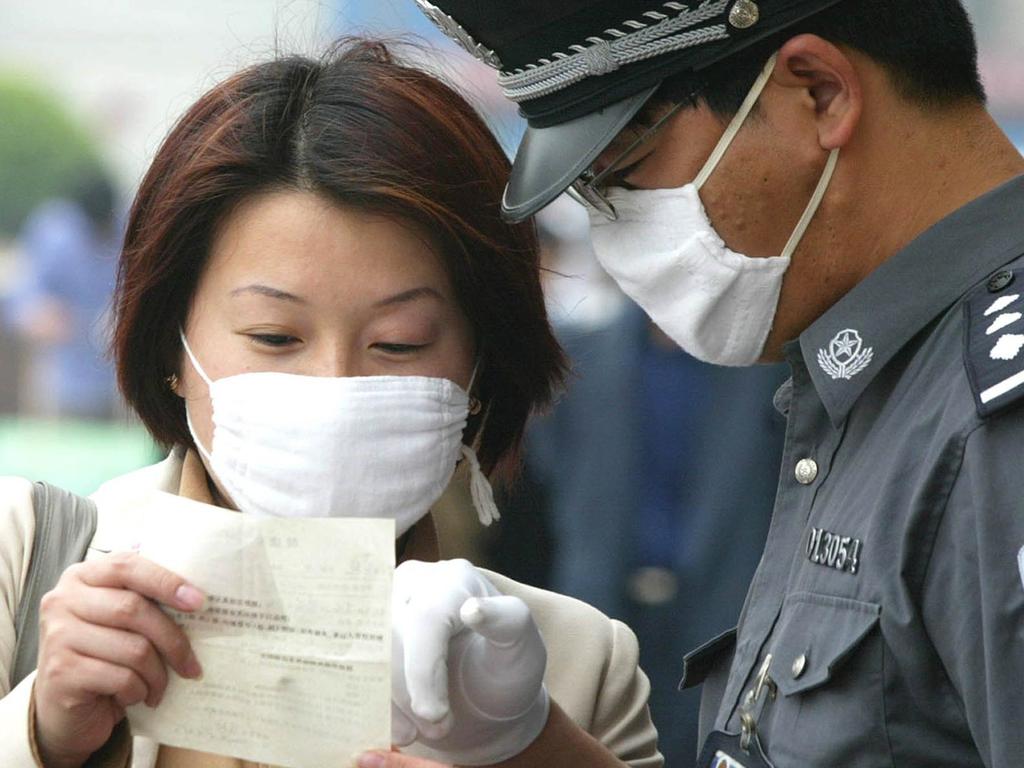China on high alert following outbreak of SARS-like virus
There are fears the deadly, dreaded SARS virus has returned after 30 people were struck down by a mysterious flu in China.

At least 30 people have been quarantined in China after they were struck down by a mysterious flu-like virus of “unknown origin”, sparking fears of a return of the dreaded SARS epidemic.
A team of experts from the National Health Commission (NHC) rushed to Wuhan in central China’s Hubei province on Tuesday and are “currently conducting relevant inspection and verification work”, state broadcaster CCTV reported.
An emergency notification issued by the Wuhan municipal health committee said hospitals in the city had treated a “successive series of patients with unexplained pneumonia”.
Of the 30 struck down by the virus, seven are in a critical condition while the others are stable, the NHC said in a statement.
Most of the patients were stallholders at the local Huanan Seafood Wholesale Market, which has been shut down in the wake of the outbreak while authorities investigate.
Initial laboratory tests found no “apparent human-to-human transmission” and so far no medical staff had been infected, the statement said.
“Investigation of the cause of infection is ongoing,” it added.
All patients have been quarantined and their close contacts are under medical observation, according to the commission.


News of the sudden outbreak led to online speculation of a link to the highly contagious severe acute respiratory syndrome (SARS).
At its height, SARS infected more than 8000 people worldwide, killing 349 in mainland China and a further 299 in Hong Kong between 2002 and 2003.
“A number of health officials in Wuhan said that the cause of the current outbreak is not clear, and it cannot be concluded that it is the SARS virus as rumoured online,” the official newspaper People’s Daily said on its Weibo microblog.
“Other severe pneumonia is more likely.”
Authorities in Hong Kong, which is about four hours from Wuhan by train, have placed the city on high alert, stepping up border screening and ensuring local hospitals are prepared.
The World Health Organisation (WHO) said it was monitoring the situation closely.
“Investigations are still being carried out and authorities cannot yet confirm what pathogen is causing this illness,” WHO senior adviser Paige Snider said in a statement.
“There are many potential causes of viral pneumonia, many of which are more common than severe acute respiratory syndrome coronavirus. WHO is closely monitoring this event and will share more details as we have them.”


Besides seafood, the Huanan market where most of those infected with the mystery virus worked also sells birds, snakes and rabbits as well as their internal organs.
“The situation in Wuhan is unusual, and we are not sure about the reasons behind the outbreak yet,” Hong Kong Secretary for Food and Health Sophia Chan Siu-chee told The South China Morning Post.
“Since we are now in the holiday season, and Hong Kong has close transport ties with Wuhan, we must stay alert.”
University of Hong Kong microbiologist Yuen Kwok-young acknowledged similarities between the Wuhan virus, SARS and the deadly 1997 outbreak of bird flu but said there was no need for panic.
“There are chances that the virus was transmitted from animals to humans, but so far the authorities have not identified the virus,” Prof Yuen told The Post.
WHO criticised China for under reporting the number of SARS cases following the 2003 outbreak, which originated in the southern Chinese province of Guangdong.
China sacked its then health minister Zhang Wenkang for the poor handling of the crisis in 2003, several months after the first case was reported.
– with AFP




